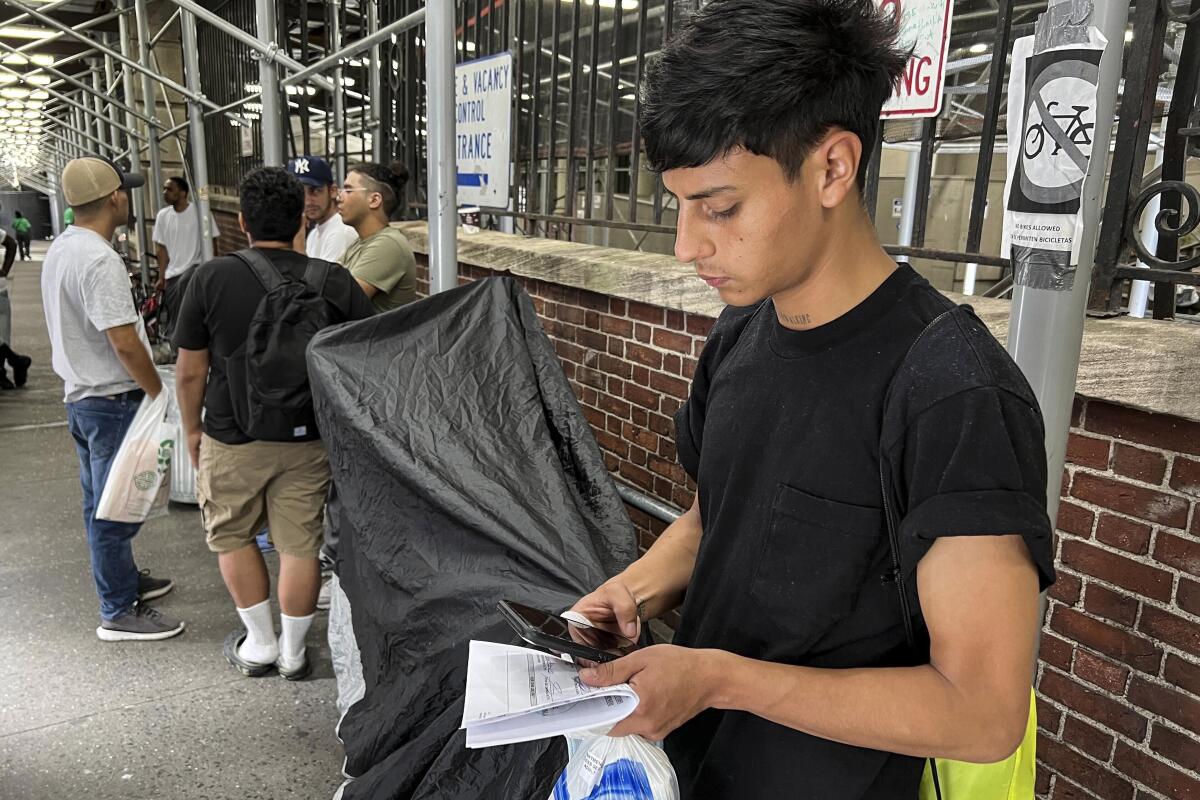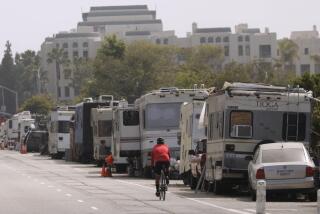As shelters fill, New York will use tents to house migrants

NEW YORK — New York’s mayor says he plans to erect hangar-sized tents as temporary shelter for thousands of international migrants who have been bused into the city as part of a campaign by Republican governors to disrupt federal border policies.
The tents are among an array of options — including cruise ships and summer camps — the city is considering as it struggles to find housing for an estimated 13,000 migrants who have wound up in New York after being bused north from border towns in Texas and Arizona.
“This is not an everyday homelessness crisis, but a humanitarian crisis that requires a different approach,” New York Mayor Eric Adams said in a statement Thursday.
New York’s huge system of homeless shelters has been straining to accommodate the unexpected flow of migrants seeking asylum in the U.S.
In Arizona and Texas, officials have loaded people on buses for trips to Washington and New York. More recently, Florida, which has a Republican governor running for reelection, flew migrants — at public cost — to Martha’s Vineyard in Massachusetts.
Adams said the city had opened 23 emergency shelters — and was considering 38 more — to handle the people bused into the city since May. The city also recently opened a multimillion-dollar intake center to help the newcomers quickly get settled.
The first tent has been proposed for a remote corner of the Bronx, a parking lot at a popular city beach on Long Island Sound where public transportation is limited. Officials are looking into other areas.
A rendering of the likely design of the facility, released by the city, showed rows and rows of cots. Presumably, the tent would be heated, as autumn nights in the city can be quite cool, but the city released few details.
City officials said the facilities — which they call “humanitarian emergency response and relief centers” — would house migrants for only up to four days while the city arranged other types of shelter.
Immigration advocates said the plan was not well thought out.
“While we recognize there is urgency in meeting the very real needs of asylum-seeking families while our shelter system remains overburdened, we believe that any effort to open a temporary relief camp at Orchard Beach is ridiculous and likely to cause more harm than good, especially as the fall turns into winter,” said Murad Awawdeh, executive director of the New York Immigration Coalition.
“We fear that what was meant to be a temporary solution will become an inadequate permanent one,” he said.
Groups advocating for the homeless said they were reserving judgment.
“We just don’t have enough detail about what their plan is to form an opinion,” said Josh Goldfein, a staff attorney with the Legal Aid Society. “If the goal here is to sort of quickly assess what people need and get them connected to services that will help them, then that will be great.”
But he said the proposal has yet to be fleshed out.
“All we know is a location and a picture of a big tent,” he said. “We don’t know what’s going to be in it — or who.”
In a statement, the Legal Aid Society and the Coalition for the Homeless said they were working with city officials to come up with “a viable solution that satisfies New York’s legal and moral obligation to provide safe and adequate shelter to all who seek it, including asylum seekers.”
Earlier this month, Adams had floated the idea of housing hundreds of migrants on cruise ships.
Critics pounced on that idea, saying he needs to offer more lasting solutions to a problem that has long vexed the city: How to find permanent shelter for the city’s unhoused — not just new migrants but for the considerable population of the homeless.
Overall, the number of people staying nightly in New York’s homeless shelters had fallen in recent years, partly because of the COVID-19 pandemic. That led city officials to reduce shelter capacity, leaving the system unprepared for the sudden surge in people needing help.
More to Read
Sign up for Essential California
The most important California stories and recommendations in your inbox every morning.
You may occasionally receive promotional content from the Los Angeles Times.









